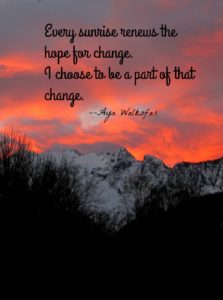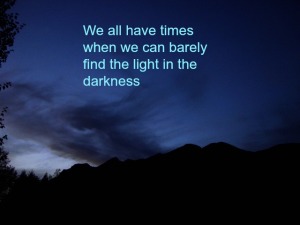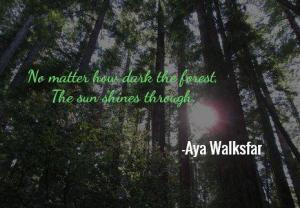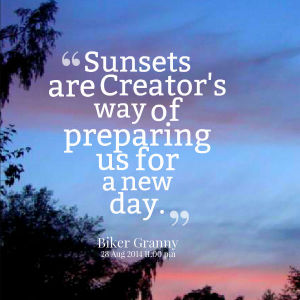
There are some books much more terrifying than the scariest haunted house or even Stephen King’s imagination.
-
What We Know About Climate Change by Kerry Emanuel
https://www.amazon.com/About-Climate-Change-Boston-Review/dp/B009Z3TXRY
I don’t know of any scarier subject than climate change. In those two words the future of earth and its inhabitants are held hostage.
In this book, Emanuel begins by saying: “Scientific research has solidified the idea that human-induced climate change presents significant risks to our descendants, and the understanding of key elements of those risks. For example, the acidification of the oceans by increased input of carbon dioxide from the atmosphere is now viewed as among the most significant threats posed by our ever-increasing combustion of fossil fuels. But even while science has reached a strong consensus that climate is indeed changing, that the change is caused mostly by us, and that it poses important risks, public recognition of and concern about these risks has diminished (emphasis is mine; not Emanuel’s), particularly in the United States.”
To me—this is truly scary stuff! Image a few decades from now when your grandchildren are raising their children; image that just getting enough drinkable water is a near impossibility; image that crops are so scarce that millions starve to death…. Scary, huh? Stephen King, let’s see you top that! -
I Am Malala: The Girl Who Stood Up for Education and Was Shot by the Taliban by Malala Yousafzai and Christina Lamb
https://www.amazon.com/Am-Malala-Stood-Education-Taliban-ebook/dp/B00CH3DBNQ
In the first few pages of her book Malala says, “…I’d imagine that on the way home a terrorist might jump out and shoot me….” She goes on to say, “I wasn’t scared, but I had started making sure the gate was locked at night and asking God what happens when you die. I told my best friend, Moniba everything.”
Imagine the constant fear of living in the shadow of such a threat! How hard your heart would pound at every slight noise, every rustle of the underbrush, every strange human that walked toward you.
Malala, a Pakistani teen, was shot in the head by the Taliban while on a school bus en route to her home simply because she wanted an education. This is flat out horrifying. I can’t imagine the terror she must have lived through, and yet she emerged a strong young woman who campaigns relentlessly for educational opportunities for girls.
What is truly beyond scary and right into terrifying, however, is that violence toward girls who want to obtain an education is not uncommon in our modern world. -
The Whistleblower: Sex Trafficking, Military Contractors, and One Woman’s Fight for Justice by Kathryn Bolkovac
https://www.amazon.com/Whistleblower-Trafficking-Military-Contractors-Justice-ebook/dp/B004CYERM2
I can’t describe the horror within the pages of this book as well as the author’s book description: “When Nebraska police officer and divorced mother of three Kathryn Bolkovac saw a recruiting announcement for private military contractor DynCorp International, she applied and was hired. Good money, world travel, and the chance to help rebuild a war-torn country sounded like the perfect job. Bolkovac was shipped out to Bosnia, where DynCorp had been contracted to support the UN peacekeeping mission. She was assigned as a human rights investigator, heading the gender affairs unit. The lack of proper training provided sounded the first alarm bell, but once she arrived in Sarajevo, she found out that things were a lot worse. At great risk to her personal safety, she began to unravel the ugly truth about officers involved in human trafficking and forced prostitution and their connections to private mercenary contractors, the UN, and the U.S. State Department. After bringing this evidence to light, Bolkovac was demoted, felt threatened with bodily harm, was fired, and ultimately forced to flee the country under cover of darkness—bringing the incriminating documents with her. Thanks to the evidence she collected, she won a lawsuit against DynCorp, finally exposing them for what they had done. This is her story and the story of the women she helped achieve justice for.
At first read, you don’t want to believe that these words could be true. I want to assure—they are true. Human trafficking is a multi-billion dollar industry that thrives not only in war torn countries, but in industrialized nations, such as the United States. I know.
My research when I wrote Street Harvest, (https://www.amazon.com/Street-Harvest-Special-Crimes-Team-ebook/dp/B00KVREDIC) included discussions with Washington State Missing and Unidentified Persons Unit (MUPU) helped me grasp the widespread cancer of human trafficking. Here in the United States where we supposedly value children, a child goes missing every FORTY SECONDS. Many of these kids wind up on the streets.
Street kids, transient and untracked, are particularly high risk for becoming victims of forced prostitution, export to overseas brothels, and victims of death porn where are children are filmed as they are murdered while being sexually abused. Children as young as six years old are at risk. My book is fiction based on factual research.
Kathryn Bolkovac’s book is factual; and, it is a very scary reality. I have never seen a horror flick that made my heart pound as hard or caused fear to dry out my mouth so thoroughly as what the reality of human trafficking does. -
The 51% Minority (How Women Still Are Not Equal and What You Can Do About It) by Lis Wiehl
https://www.amazon.com/51%25-Minority-Women-Still-Equal-ebook/dp/B000SEICC6
The Introduction of this book begins with a dinner conversation where there was discussion of civil rights, the Supreme Court and other current events. The author writes, “…then a gentleman seated to my right, a successful gay professional, said something that alarmed me. ‘I certainly wouldn’t want to be a woman today,’ he told the table. ‘It’s a no-win situation. You’re damned if you do and damned if you don’t with every single decision, and your body is a political playground. At least as a gay man, I know where I stand. As a woman, you’re stuck in some weird societal purgatory.’
‘Yeah,’ another man agreed. ‘Isn’t it strange that women are fifty-one percent of the population and still get the short end of the stick on almost every front?’”
In my upcoming thriller, Attack!, I quote research I did on Theodore Roosevelt. In the late 1800s, he wrote his thesis for Harvard on the rights of women. It was his contention that women should have absolute equality in marriage and not even be expected to assume their husbands’ names. In other writings, he maintained that women should have the right to vote, the right to hold property, the right to work at any profession and to receive equal pay for equal work.
We have won the right to vote and the right not to assume our husbands’ names; however, Latina women continue to earn fifty-six cents to a white man’s dollar for performing the exact same job while black women earn sixty-seven cents and white women earn seventy-four cents and every woman grows up under the certainty one in three women will be sexually assaulted in her lifetime. We know that we must live a hyper-vigilant life if we are to reduce the odds. We can never let our guard down in public; never relax and get a little tipsy; never daydream our way home from work after dark; and even in our own homes, we must remain aware of the potential to become a victim of domestic violence or home-invading rapists.
How is that for heart-thundering suspense? For never knowing from what quarter the attack might come? Horror writers—eat your heart out! You can’t write fiction as terrifying as this reality. -
Beyond the Silence, A Woman’s Journey to Freedom by Aya Walksfar
https://www.amazon.com/Beyond-Silence-Aya-Walksfar-ebook/dp/B01ADRQ0K8
What would you do if your child was suddenly ripped away from you? Taken as hostage to force you back into a situation of certain torture, violence and blood? How much fear would slice through your guts, freeze your innards?
Beyond the Silence is fact cloaked in fiction. Based on the lives of real women who have fought back, survived, and triumphed, this book enters the dark world of cultural and familial abuse; childhood sexual molestation by religious persons and family members; domestic violence and forced BDSM during marital rape. How does a girl grow up or a woman survive a culture that preaches females are second class human beings? How does a woman overcome the propaganda that makes her feel crazy for believing her own reality?
These subjects are the elephants that sit at Sunday dinner around the family tables all across America. These are the elephants that eat at the tables of rich and poor; black, white, Native American and every other race. These are the elephants that have no regard for which religion you follow, which nationality you proclaim, or which region of the country in which you are born.
The fact is: No woman is safe. She is not safe on the streets, on the job, on public transportation, in her school, on a university campus, or in her home. Regardless if she is seven years old or seventy-eight years old, she is at risk every single day.
And that is the scary reality of being a woman in America today. Haunted houses simply cannot compete with that kind of scary.

Be sure to sign up with your email to receive my monthly newslatter and my weekly blog posts!
Unfortunately, you will need to enter your email in both email slots to receive both newsletter and blog notifications. We’re working on integrating this. Please be patient. Thanks!
If you are already a follower—THANKS!


